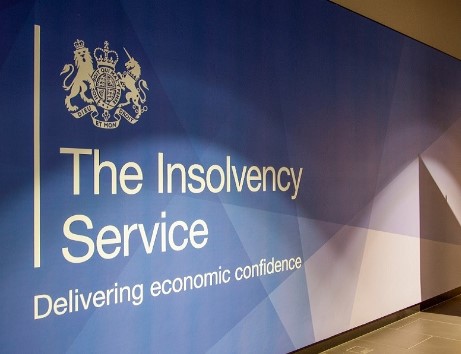Chair of the Chartered Institute of Marketing’s Charity and Social Marketing Group, Maria Andrews, provides advice on how charities can continue to fundraise successfully during a recession.
_________________________________________________
With the UK economy facing significant challenges, charities all over the country will be looking at how to cope with economic pressures and uncertainties. During these difficult times, charities may face rising costs, wage pressures, and the concern of a decrease in public donations as people cut back on their spending.
Whilst recessions may not necessarily lead directly to a fall in donations, it can result in charities experiencing less funds available to them and a rise in demand for their services as the economy weakens and society relies more heavily on their support.
In fact, even in 2021 - prior to the current economic turmoil - the National Council for Voluntary Organisations surveyed charities and found that over half, (57%) reported growth in demand for their services. What’s more, only 4% expected this demand to decline.
With these factors in mind, here are five top fundraising tips for charities during a recession:
1.Stay focused on the mission and vision of the charity
When facing significant challenges, it can be easy to lose sight of the end goal. It’s important to reduce any activity that deviates from accomplishing your charity’s priorities and those that will make the greatest impact on your beneficiaries.
You may find it useful to review your charity’s current goals, objectives and plans to ensure that every team member is fully aware and in agreement with the direction you’re working towards. It might be good to gather everyone together to share ideas and give everyone a chance to voice their thoughts and suggestions. This could also include your trustees who will be working hard to support the leadership team in continuing the viability of the charity.
2. Work to boost team morale and staff motivation
It’s important to try and maintain staff morale and motivation during this time. One way to do this is by aiming to get some quick, easy wins from the fundraising team. As the lifeline of a charity, fundraising is everyone’s business so consider opening up to wider team members across the organisation that work in marketing, communications and public relations, advocacy and programme management. Another great way to boost morale is to spend a day thanking your supporters, donors and volunteers for their support – and you will be surprised that a thank you can sometimes lead to other good things happening.
3. Keep an eye on the pennies
Many people across the country are looking to save money where they can and it’s no different for charities or businesses. So try and review activities that could help conserve finances. For example, can you recycle previous marketing communications assets and use them in a way that refreshes them, with small tweaks?
Your financial team are there to support you and can always be asked for guidance on how to reduce expenditure and also achieve the full cost recovery that a charity requires for future planning. Whilst it may seem daunting, it’s best to ask the question earlier rather than later. They will have the tools and insights for successful financial management so explore this avenue as well.
4. Speak with your donors, funders and those you care for to understand their views and challenges
Charities thrive on volunteers, supporters, staff and service users, and during a recession they may need extra support.
For existing and potential donors (including individuals, major donors, as well as your trusts & foundations, your community fundraisers), it’s vital you talk to them to understand their objectives, alongside their short and long-term strategies. This will give you the insights and accurate information you need before making an ask for donations.
For the people you support, you may wish to increase the frequency and thoughtfulness of your communications to them to help bring the community together. This can also be done internally, to ensure your colleagues feel connected.
5. Repeat step one!
It can be all too easy to focus on just trying to survive during a recession, rather than making real progress towards your end goal. Review your goals and ambitions to decide which are a real priority and are achievable, despite the economic uncertainties we face. Whilst progress may be slower than when economic circumstances are more favourable, even small steps can play a vital role in maintaining team spirit and keeping your charity's vision alive and remaining true to your organisations purpose.
Latest News
-
Girlguiding admits it is ‘not yet representative of girls in the UK today’ four years after racism report
-
UK’s most affluent areas are the least generous, report finds
-
Exclusive: More than 40 UK charities quit X for Bluesky in last three months
-
Regulator bars charity from selling 16 properties it owns
-
Small criminal justice charities locked out of government funding, report warns
-
Human rights expert to lead HIV charity’s board
Charity Times video Q&A: In conversation with Hilda Hayo, CEO of Dementia UK
Charity Times editor, Lauren Weymouth, is joined by Dementia UK CEO, Hilda Hayo to discuss why the charity receives such high workplace satisfaction results, what a positive working culture looks like and the importance of lived experience among staff. The pair talk about challenges facing the charity, the impact felt by the pandemic and how it's striving to overcome obstacles and continue to be a highly impactful organisation for anybody affected by dementia.
Charity Times Awards 2023
Mitigating risk and reducing claims

The cost-of-living crisis is impacting charities in a number of ways, including the risks they take. Endsleigh Insurance’s* senior risk management consultant Scott Crichton joins Charity Times to discuss the ramifications of prioritising certain types of risk over others, the financial implications risk can have if not managed properly, and tips for charities to help manage those risks.
* Coming soon… Howden, the new name for Endsleigh.
* Coming soon… Howden, the new name for Endsleigh.
Better Society

© 2021 Perspective Publishing Privacy & Cookies











Recent Stories